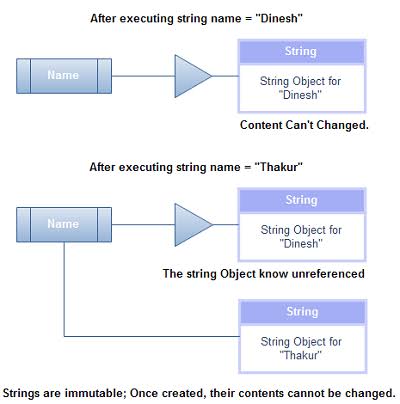Why Are Strings Immutable in Java? Safety and Performance Conveniences
Why Are Strings Immutable in Java? Safety and Performance Conveniences
Blog Article
What Is Unalterable Strings and Exactly How It Functions
In the world of programming, comprehending the concept of unalterable strings is critical for creating durable and protected applications. Immutable strings refer to strings that can not be modified after they are developed, making sure data honesty and predictability within the code.
The Fundamentals of Immutable Strings
Immutable strings, as a fundamental principle in programming, are character series that can not be transformed once they are created. This means that as soon as a string is designated a worth, that value can not be changed. In languages like Python and Java, strings are unalterable things, resulting in various implications in terms of memory monitoring and information stability.
Among the essential benefits of unalterable strings is that they give a sense of safety in information adjustment. Given that the material of an immutable string can not be modified, it guarantees that the original data continues to be undamaged, lowering the danger of unintentional adjustments during program implementation (Why are strings immutable in Java?). This home also streamlines debugging processes, as designers can rely on that when a string is specified, its value will certainly not be accidentally altered
Additionally, unalterable strings help with reliable memory usage. When a brand-new string is developed based upon an existing one, instead of customizing the original string, the new value is saved independently. This technique boosts efficiency by minimizing memory fragmentation and streamlining memory allotment procedures. Overall, understanding the basics of immutable strings is crucial for grasping programming ideas and optimizing code efficiency.
Benefits of Unalterable Strings
Structure upon the security and efficiency advantages of immutable strings, their advantages encompass improving code dependability and streamlining concurrent shows tasks. By being unalterable, strings can not be changed after production, which eliminates the risk of unexpected adjustments in the data they save. This inherent immutability makes sure that when a string is produced, its value continues to be constant throughout the program's execution, lowering the possibilities of pests caused by unforeseen changes.
In addition, unalterable strings contribute to code reliability by making it simpler to reason about the state of a program. Considering that strings can not be changed, developers can trust that a string will certainly always hold the same worth, streamlining debugging and upkeep efforts. This predictability brings about a lot more dependable and secure codebases.

Implementation in Programming Languages
Within numerous programming languages, the incorporation of immutable strings is a fundamental aspect you can look here that impacts exactly how information is taken care of and controlled within code frameworks. The application of unalterable strings differs across various programs languages, with each language using its very own mechanisms to sustain this principle.

In contrast, languages like C and C++ do not have integrated assistance for unalterable strings. Designers in these languages need to by hand apply immutability by implementing policies within their code to stop straight adjustments to string things.
Ideal Practices for Dealing With Unalterable Strings
When taking care of immutable strings in programs blog here languages like Java and Python, sticking to finest practices ensures safe and secure and efficient information control. Among the essential finest techniques is to make use of StringBuilder or StringBuffer rather than straight manipulating strings, especially when taking care of substantial concatenation procedures. These classes give mutable options for string manipulation, aiding to avoid unneeded memory allowances and boosting performance.
Another best technique is to use string interpolation or formatting functions provided by the language as opposed to hands-on concatenation. This not only improves readability yet additionally aids in protecting against common challenges such as unintentional string alterations. Additionally, when dealing with delicate information such as passwords or API tricks, it is crucial to avoid storing them as ordinary message in immutable strings. Making use of safe storage systems like char varieties or specialized libraries for taking care of sensitive info assists alleviate protection dangers related to unalterable strings.
Real-world Applications and Instances
Exploring practical applications of unalterable strings in different industries reveals their substantial effect on data honesty and system reliability. In the medical care industry, unalterable strings play a critical duty in ensuring the security and privacy of person information. By stopping unauthorized alterations to sensitive details such as medical documents and prescriptions, unalterable strings help preserve compliance with strict personal privacy guidelines like HIPAA.
Financial organizations likewise benefit from the unalterable nature of strings to enhance the security of consumer information and transaction records. Immutable strings aid avoid fraudulence and unauthorized changes to financial information, offering a durable defense versus cyber dangers and making sure the trust fund and self-confidence of customers.

Verdict
Best techniques for functioning with immutable strings consist of preventing direct modifications and making use of approaches that return brand-new string things. Real-world applications of unalterable strings consist of data file encryption, caching, and string control tasks.
Unalterable strings refer to strings that can not be changed after they are developed, making sure data honesty and predictability within the code. When a brand-new string is created based on an existing one, rather than customizing the initial string, the new value is kept separately.In languages like Java and Python, strings are immutable by default, implying that as soon as a string item is developed, its value can not be altered - Why are strings immutable in Java?. Ideal practices click now for functioning with unalterable strings include staying clear of direct alterations and using techniques that return brand-new string things. Real-world applications of immutable strings include information encryption, caching, and string manipulation tasks
Report this page